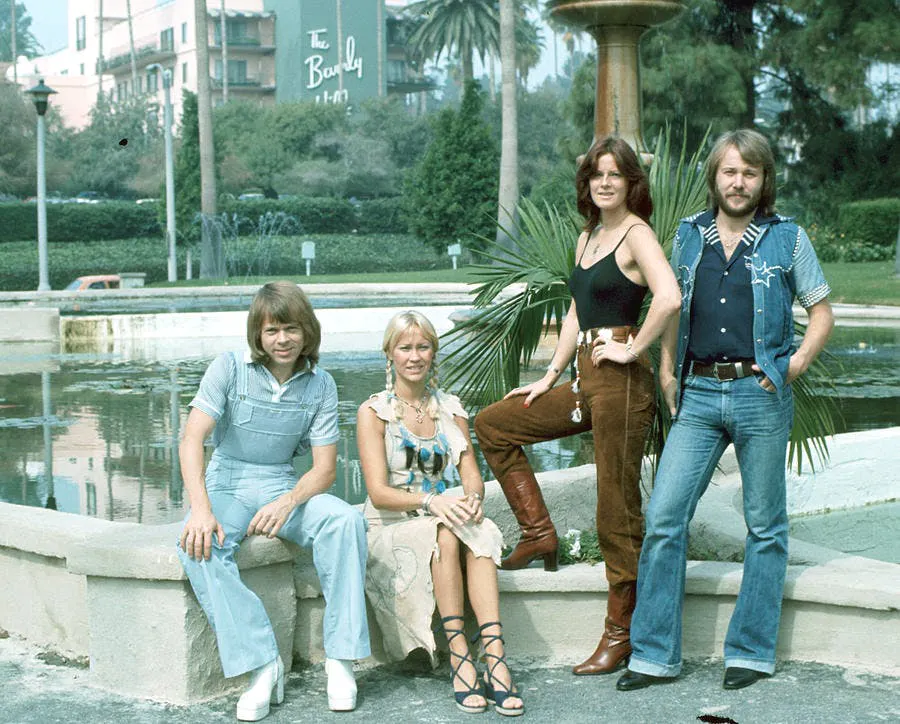
The 70s fashion was a decade of self-expression, revolution, and bold fashion statements. It was an era that witnessed the rise of influential style icons who left an indelible mark on the fashion industry. From disco divas to rock ‘n’ roll rebels, these individuals not only shaped the trends of the time but also continue to inspire fashion enthusiasts to this day. In this article, we delve into the lives and styles of the style icons who defined the glorious seventies fashion.
Table of Contents
***The Musians***
1.Donna Summer’s 70s fashion
Donna Summer, also known as the “Queen of Disco,” was a legendary American singer and songwriter. Her music and stage presence epitomized the disco era. Donna Summer’s glamorous and dazzling outfits, including sequined dresses and bold accessories, became iconic symbols of disco fashion.
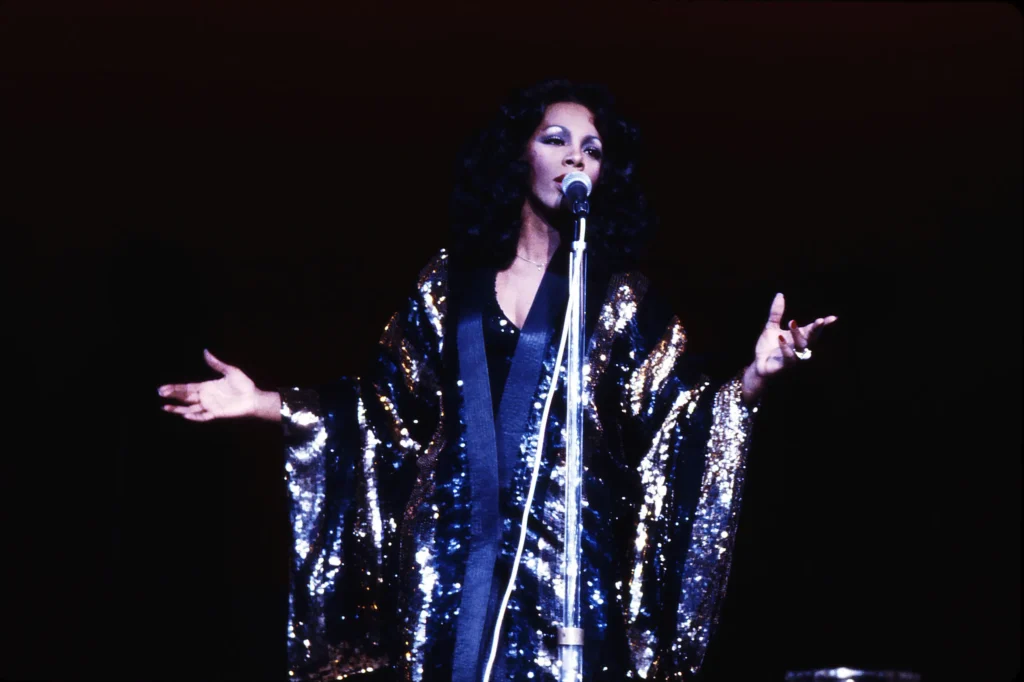
Jeffrey Mayer/WireImage
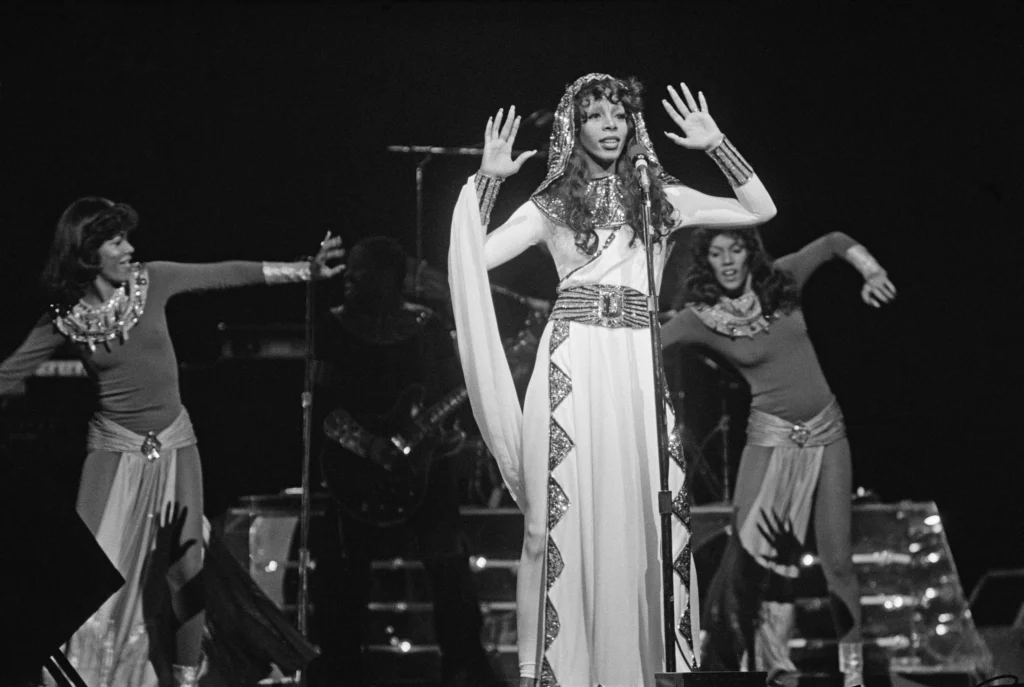
Fin Costello/Redferns via Getty Images
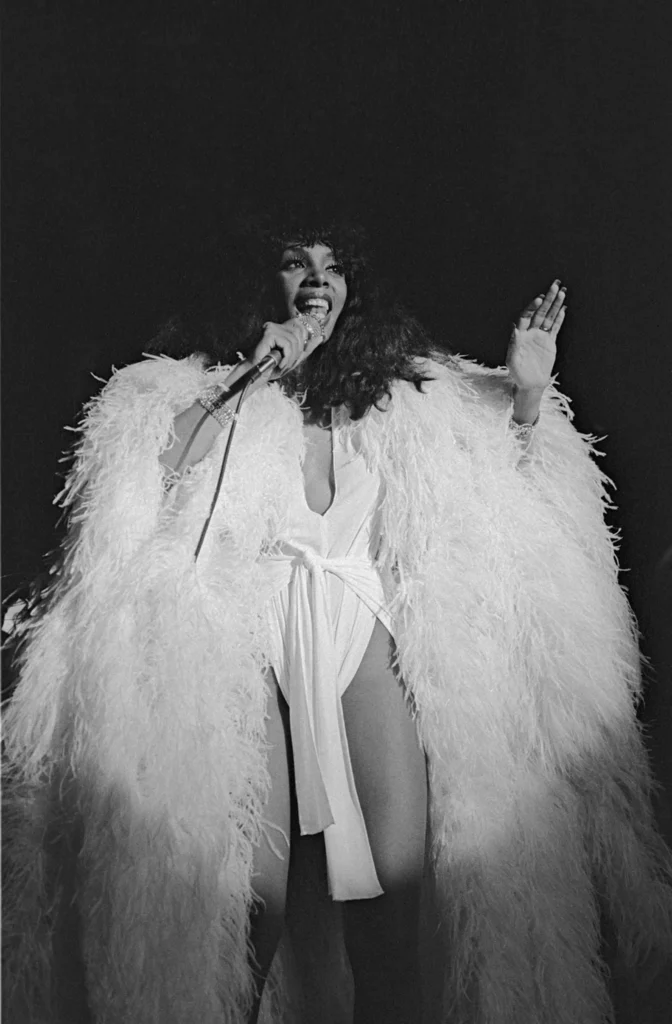
Allan Tannenbaum/Getty Images)
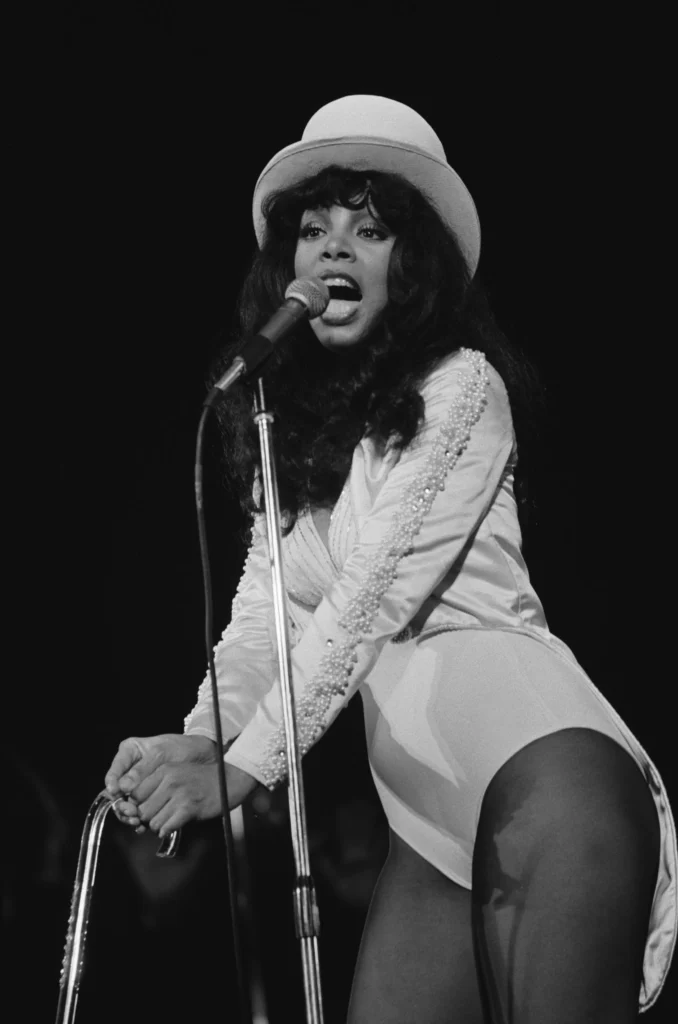
Daniel Simon/Gamma-Rapho via Getty Images
Diana Ross’ 70s fashion
Post The Supremes, Diana was all about lilac eyeshadow, loose wrap dresses and XXL hoop earrings. Like Cher, she whipped up an incredible nine albums in her first decade as a solo artist and was a key style icon, too. We’re sure the sepia tones and retro wardrobe choices in this picture must have inspired American Hustle?
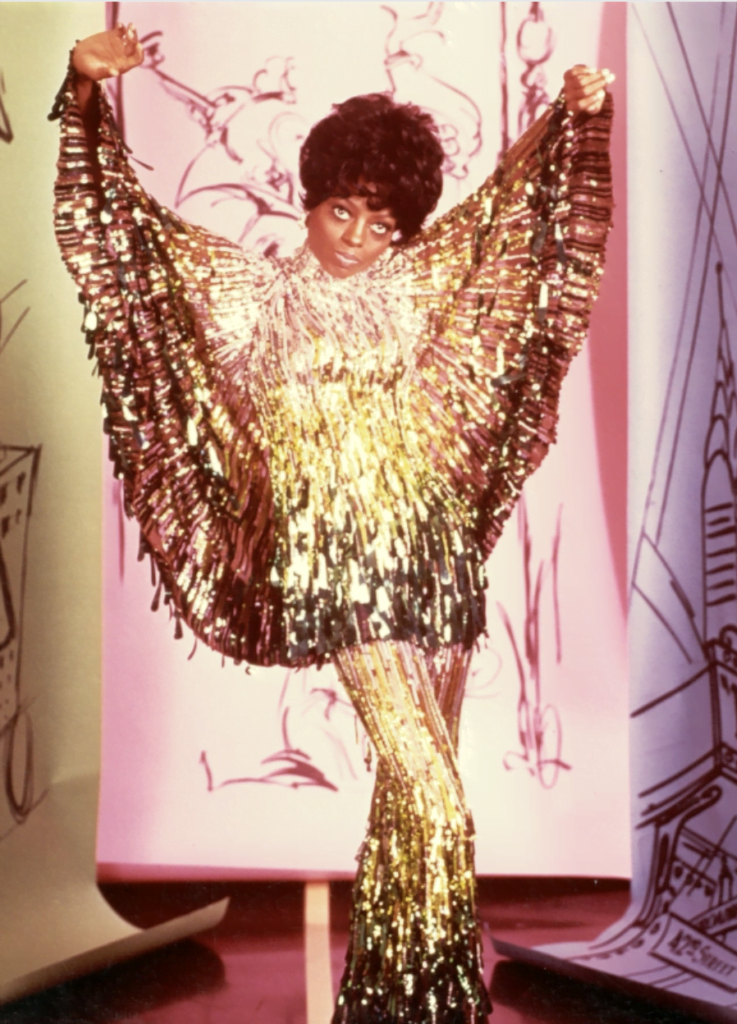
Michael Ochs Archives/Getty Images
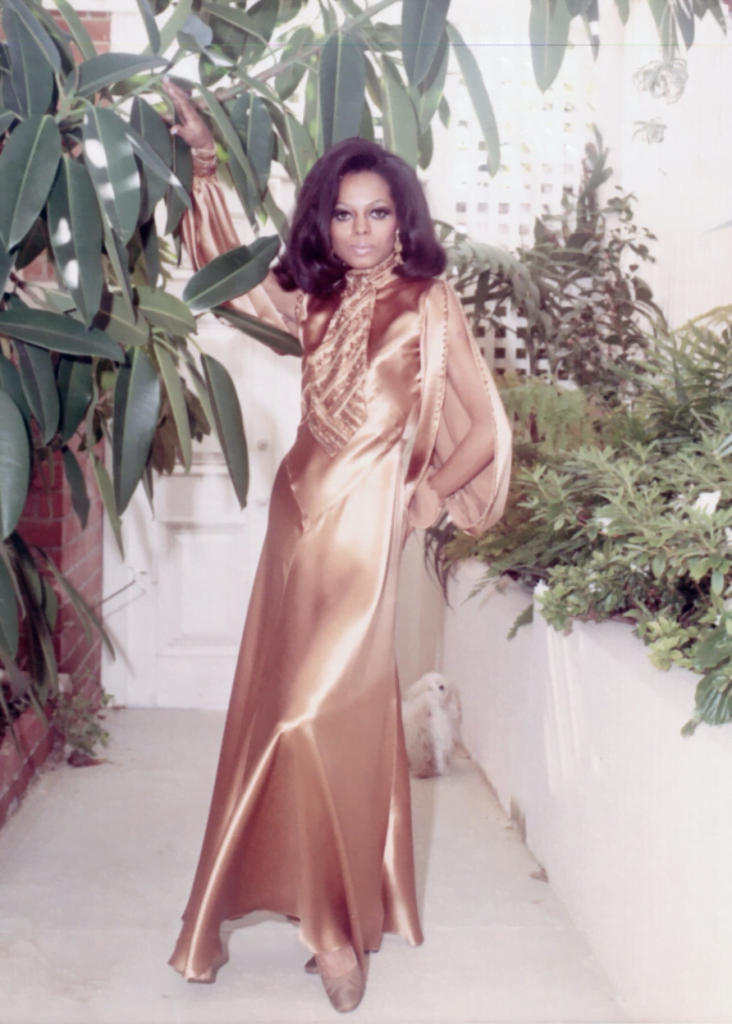
Michael Ochs Archives/Getty Images
Stevie Nicks 70s fashion
Stevie Nicks, an American singer-songwriter, is renowned for her ethereal and bohemian style. As a member of the band Fleetwood Mac, Nicks popularized the boho-chic aesthetic during the 70s. Her flowing maxi dresses, fringe details, lace, and layered jewelry inspired a generation of free-spirited fashion enthusiasts.
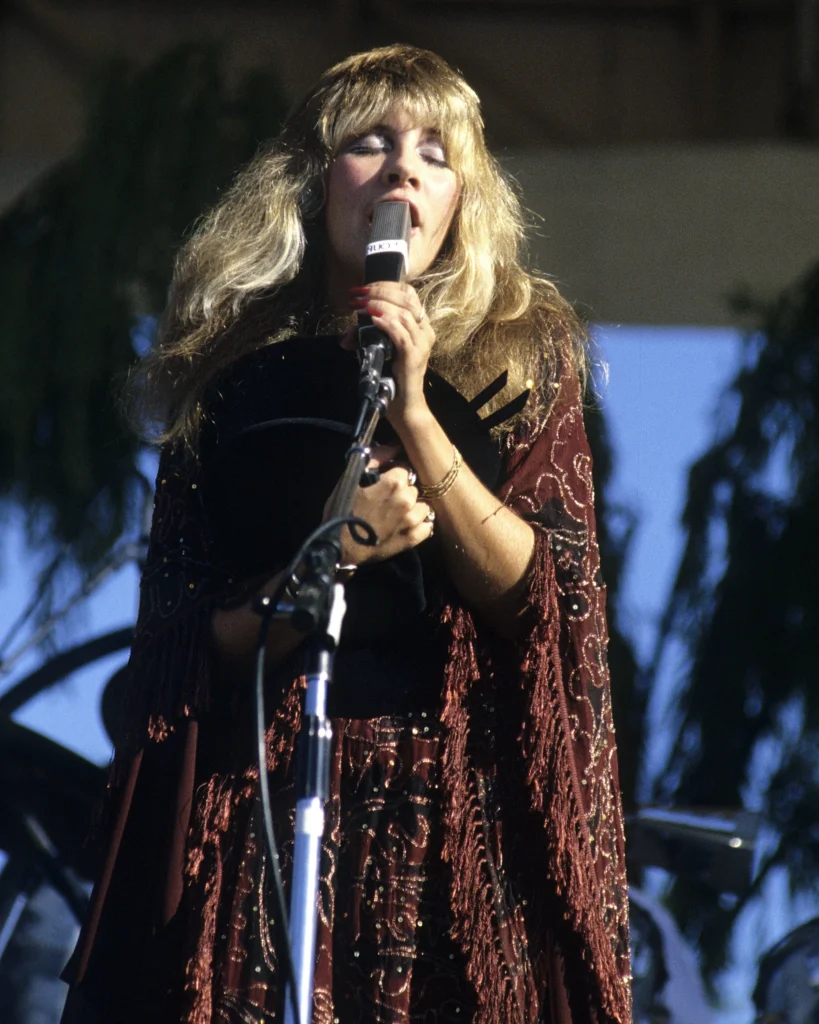
Photo by Larry Hulst/Michael Ochs Archives/Getty Images
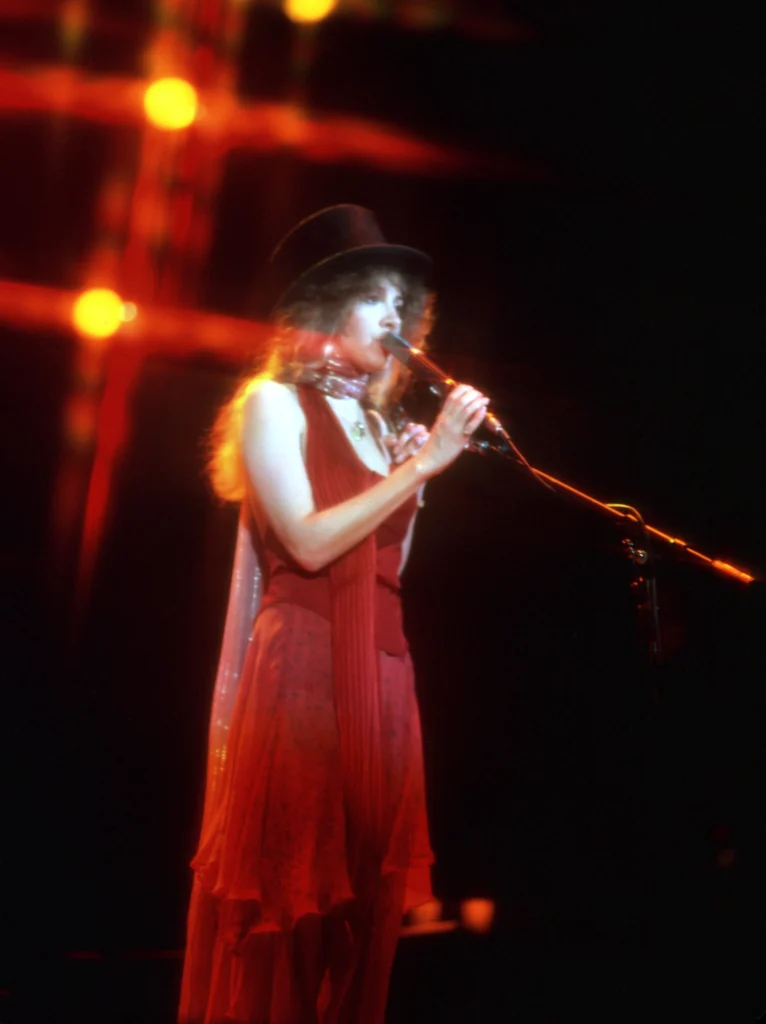
Photo by Michael Ochs Archives/Getty Images
Jane Birkin 70s fashion
Jane Birkin, an English actress and singer, became an influential fashion icon of the 70s. Known for her effortless and laid-back style, Birkin popularized the “jeans and t-shirt” look. Her casual yet chic ensembles, often paired with basket bags and floppy hats, captured the essence of bohemian fashion.
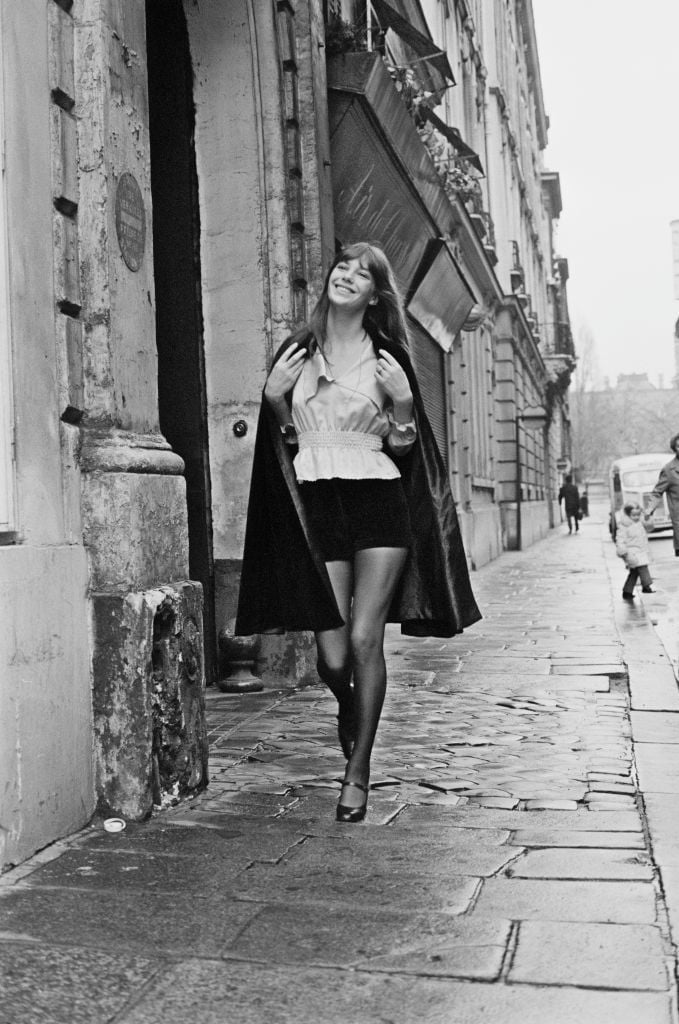
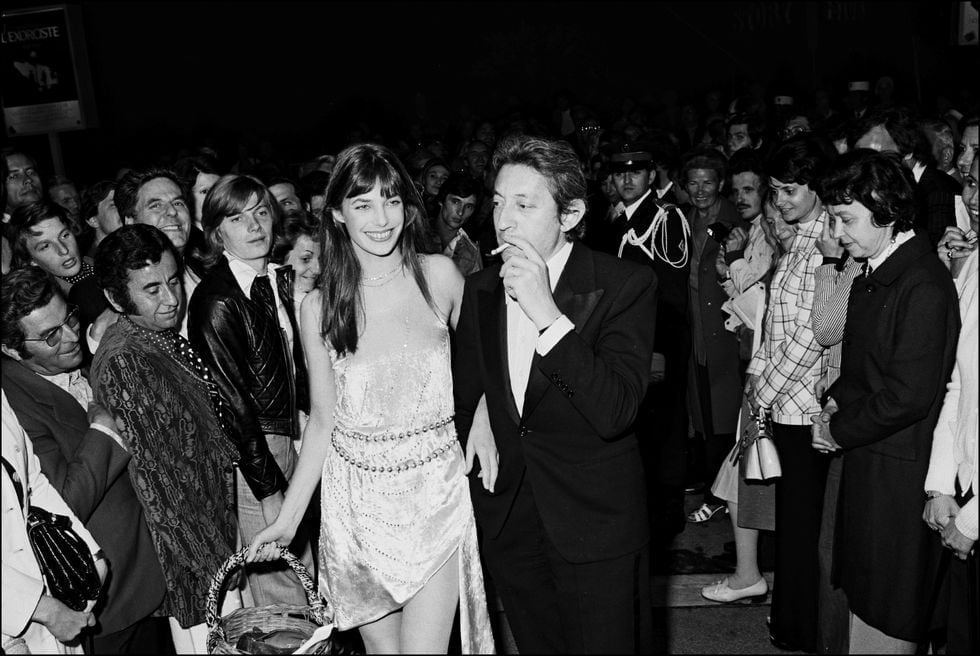
David Bowie’s 70s fashion
David Bowie, a renowned English artist, performer, and trendsetter, fearlessly challenged societal norms by transcending traditional boundaries and embracing a unique androgynous aesthetic. Through his revolutionary persona known as Ziggy Stardust, Bowie captivated audiences with his extravagant and flamboyant on-stage attire, which featured an array of vibrant jumpsuits, towering platform shoes, and cutting-edge accessories that transported fans to a futuristic realm. His audacious foray into fashion not only redefined the concept of rock ‘n’ roll rebellion but also left an indelible mark on the industry, solidifying his status as a true icon.
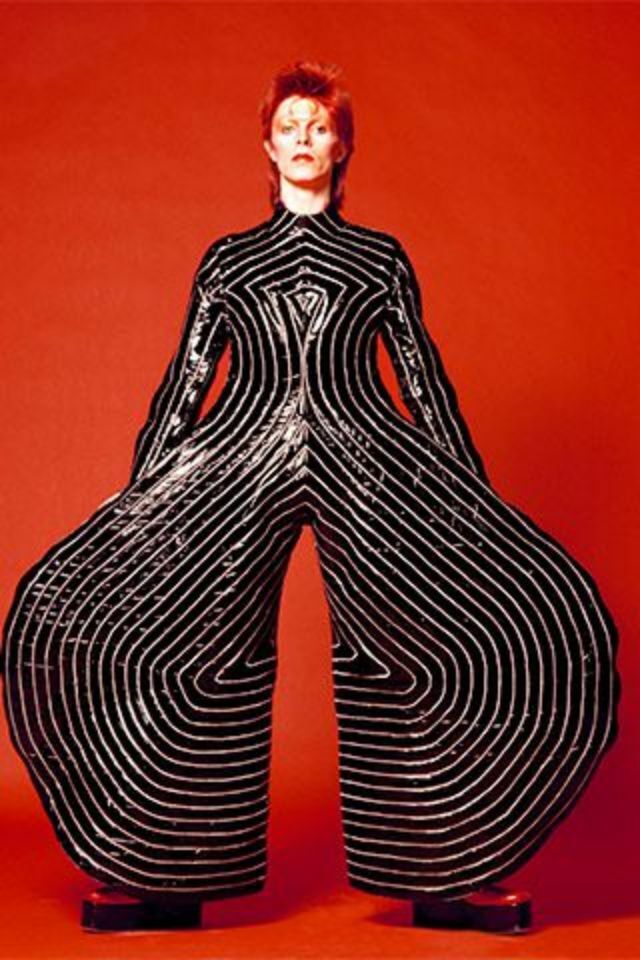
photo/vintag.es
Debbie Harry’s 70s fashion
Absolutely! Here’s a completely unique rewrite of the article:
“Double denim? Absolutely! The world of denim experienced a revolutionary boom during the vibrant 1970s when the combination of a denim shirt and flared jeans became the ultimate embodiment of casual fashion for the decade. An emerging talent, Debbie Harry, swiftly embraced this trend, coinciding with Blondie’s meteoric rise and the advent of the punk era. With a generous application of smoky eyeliner and her effortlessly tousled hair, she personified the essence of seventies punk rock.”
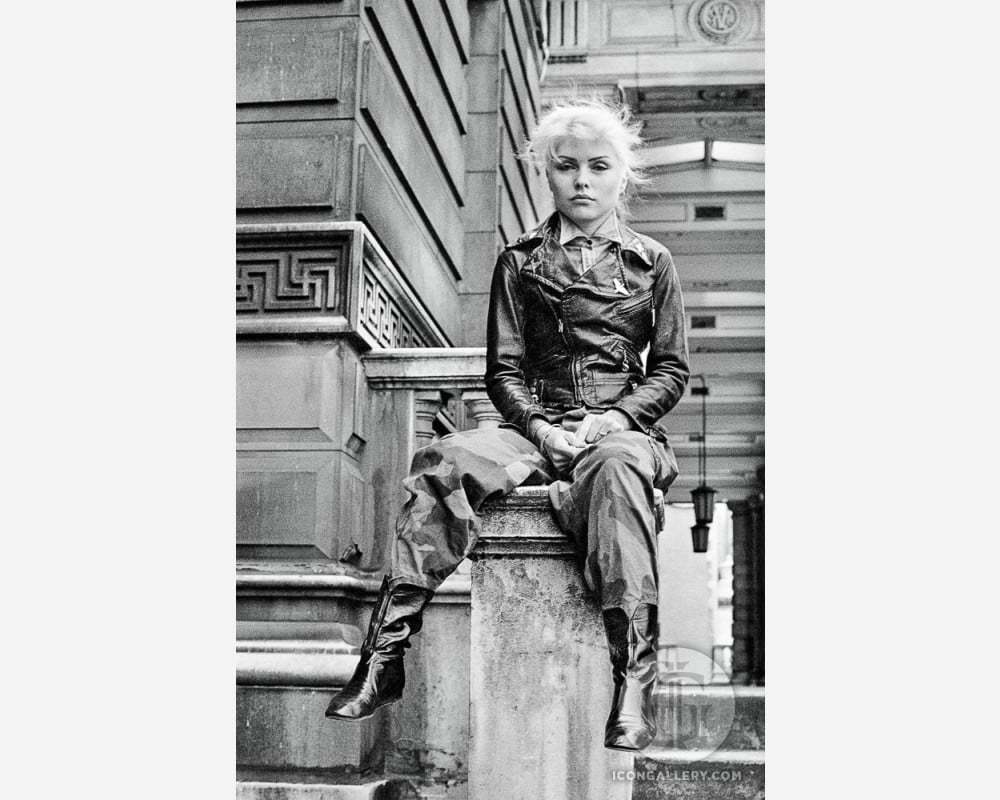
Cher’s 70s fashion
Emerging onto the music scene as one part of the iconic duo Sonny and Cher, this talented artist burst into the limelight with an impressive portfolio of 10 albums throughout the 1970s. Her presence was ubiquitous, making her a ubiquitous figure in the music industry. From bold and extravagant patterns to voluminous permed hair, she fearlessly embraced every trend that defined the era. Her fashion choices epitomized the essence of seventies style, a status that endures to this day as she continues to be revered as a true legend.

photo/collegefashion.net
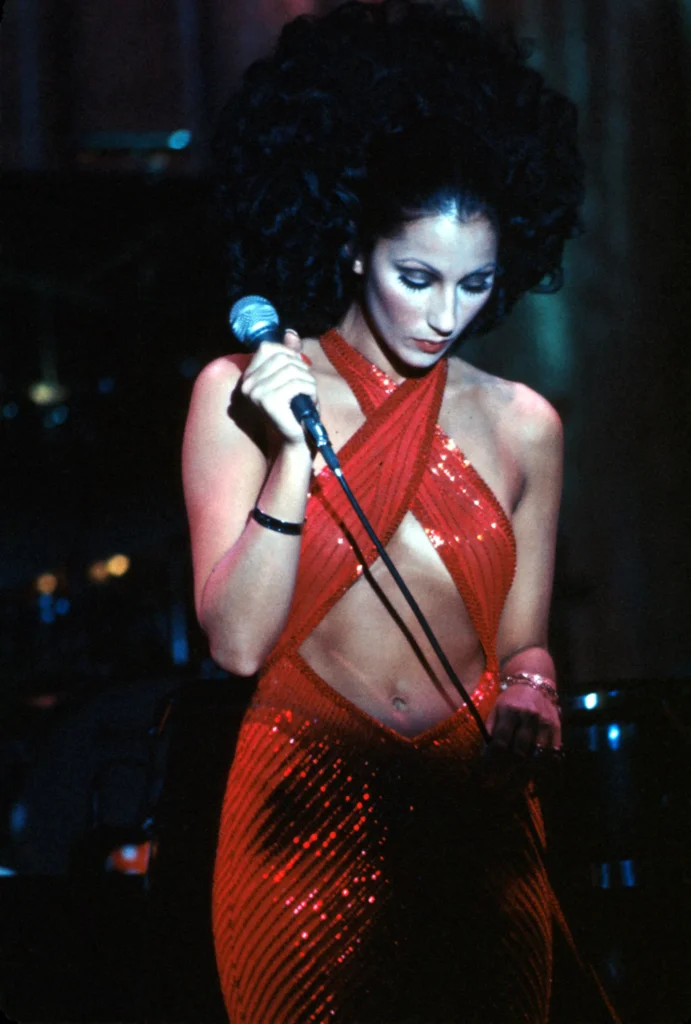
photo/lofficielusa.com
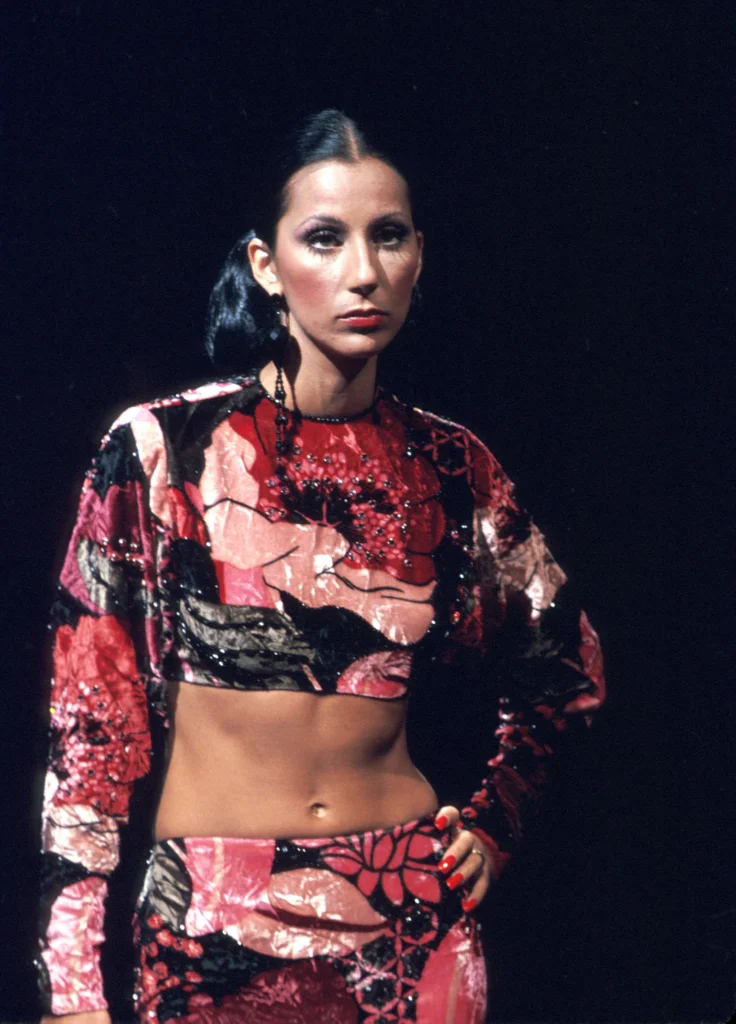
photo/lofficielusa.com
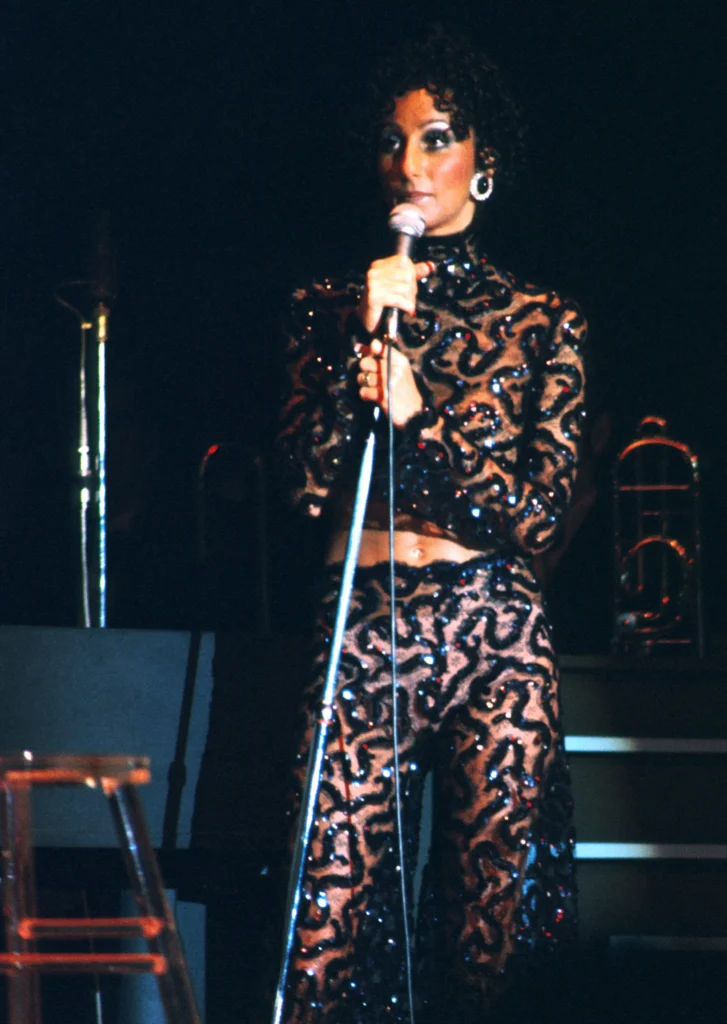
photo/lofficielusa.com
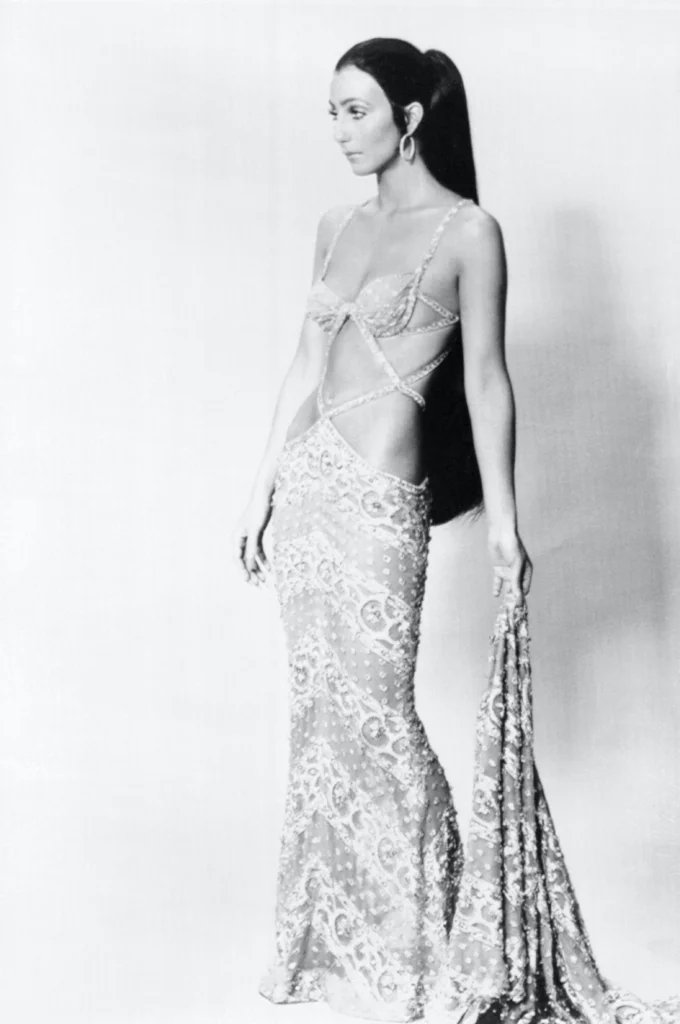
photo/lofficielusa.com
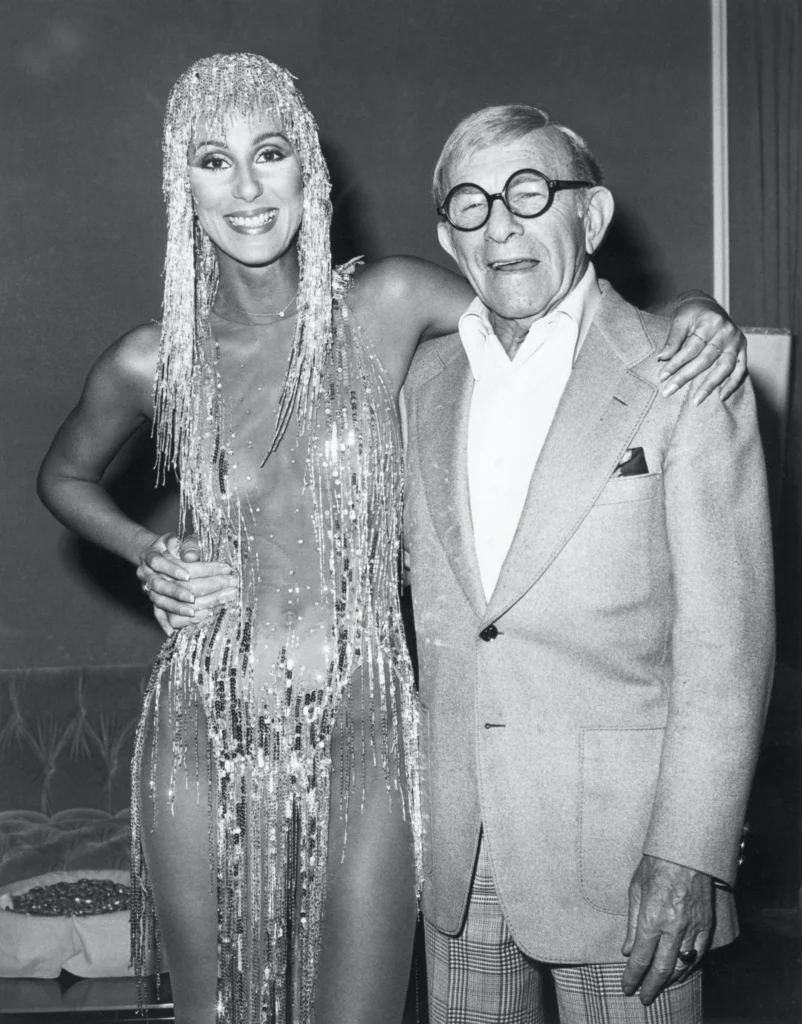
photo/lofficielusa.com
The Osmonds’ 70s fashion trends
Take a glance at Donny and Marie Osmond. Could they embody the spirit of the 1970s any more authentically? The abundance of fringes, the towering platform shoes, and the shimmering lurex trousers. The Osmond family catapulted to stardom in 1971, emerging as wholesome icons for teenagers worldwide. We acknowledged their fashion choices, though we never claimed they were consistently fashionable.
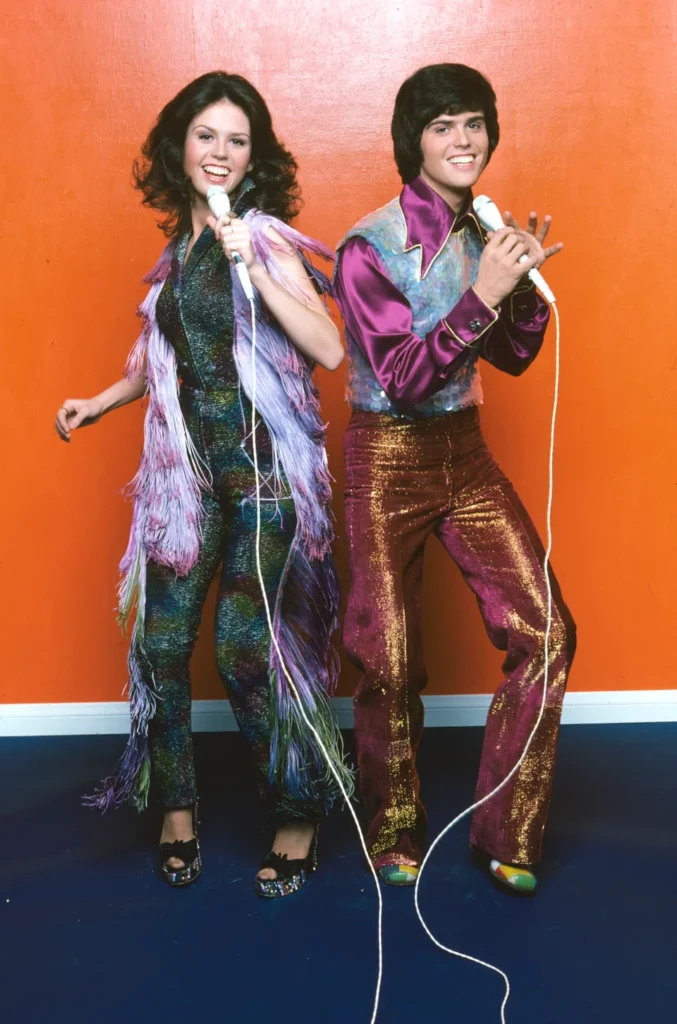
photo/huffpost.com
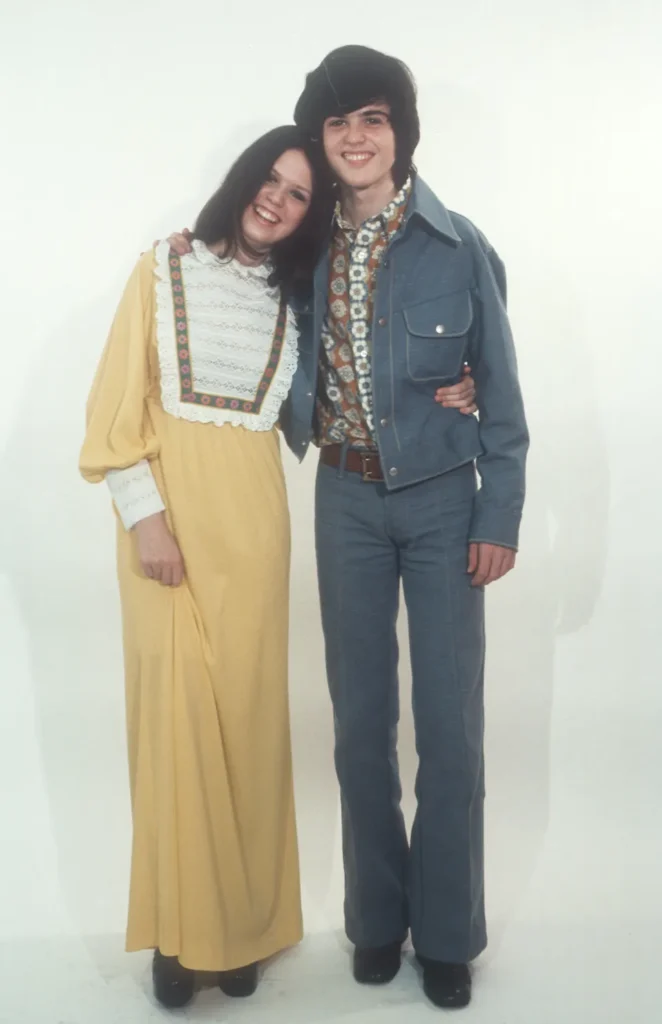
photo/huffpost.com
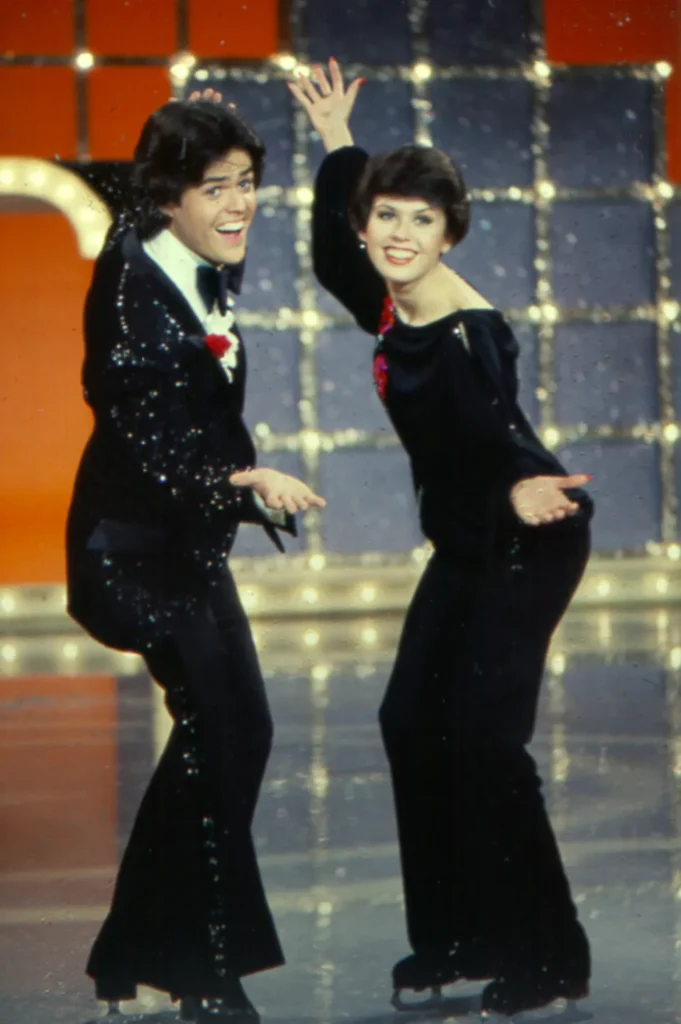
photo/huffpost.com
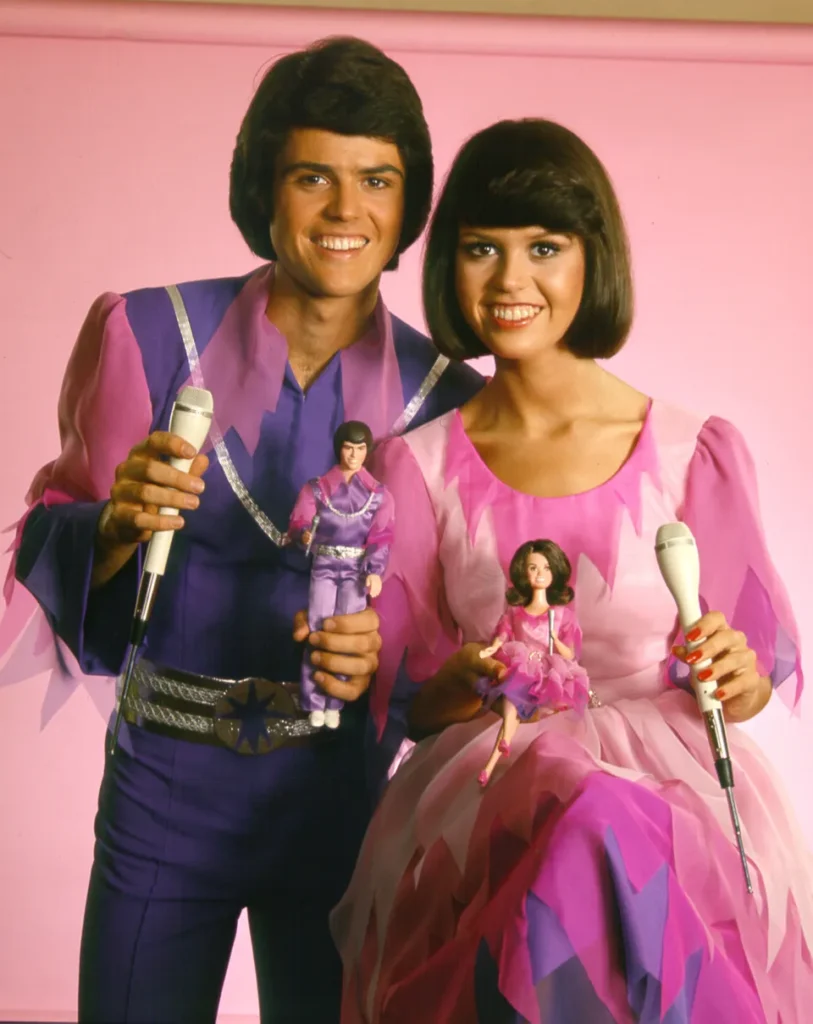
photo/huffpost.com
ABBA’s 70s fashion
Introducing a mesmerizing set of flares! Agnetha, Björn, Benny, and Anni-Frid made an electrifying entrance into the music and fashion realms in 1972, marking the debut of the captivating ‘Scandi cool’ concept in the UK. Their ensembles pushed boundaries with audacious flair (and we couldn’t get enough of it) – envision sequined hot pants paired with silver moon boots or the entire quartet donning immaculate white kimonos. Pure magnificence in every way.

photo/lofficielusa.com
Also Read: The Evolution of Casual On Campus: Why Students Love Streetwear, Athleisure, T-shirt Dresses

photo/lofficielusa.com
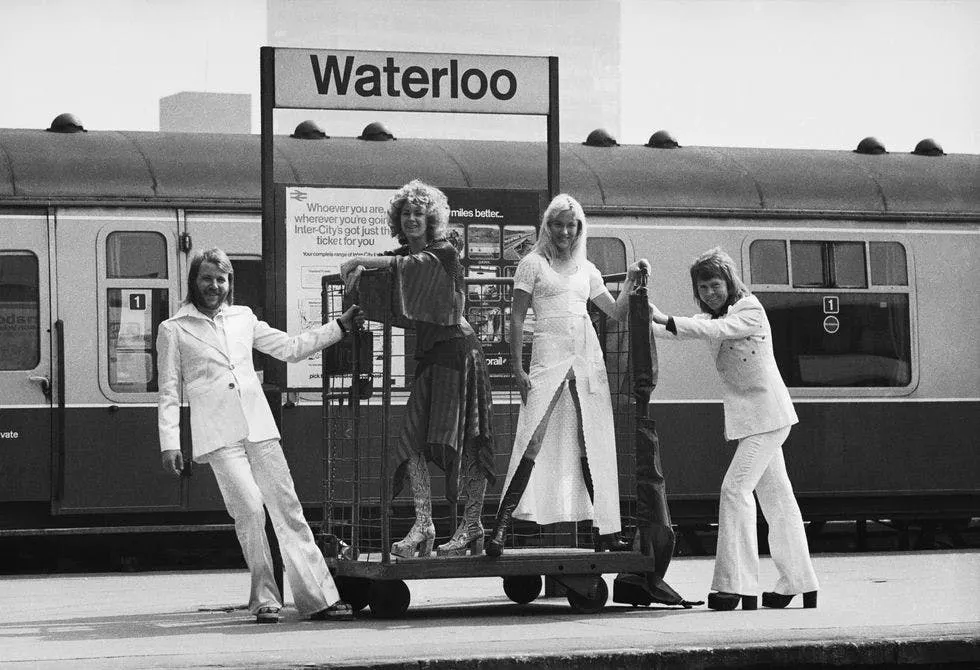
photo/lofficielusa.com
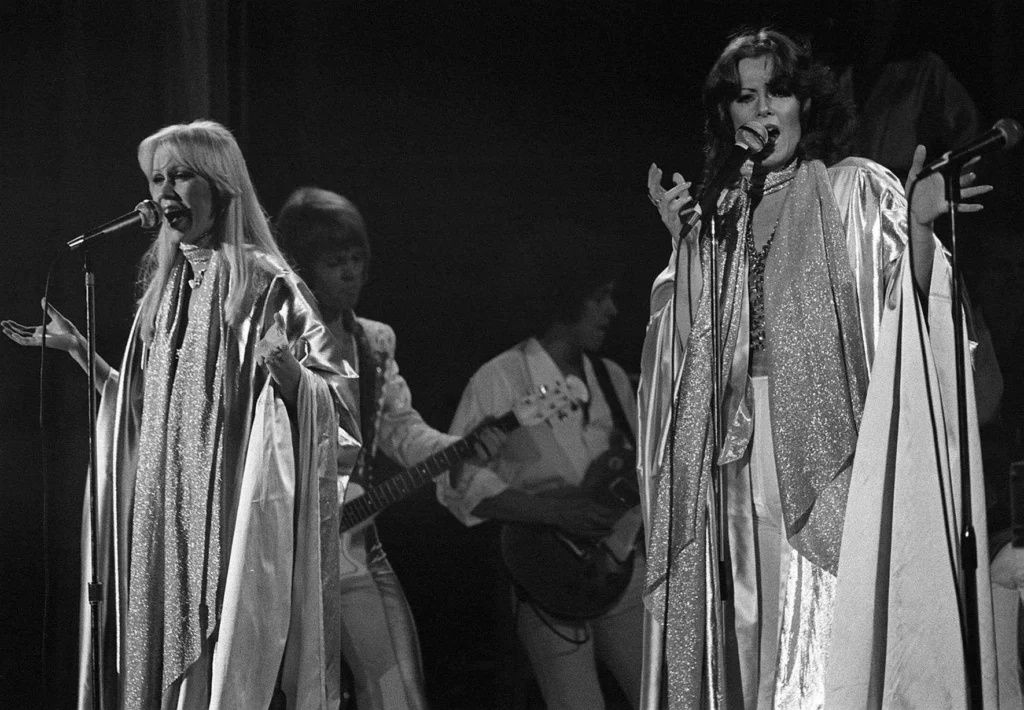
photo/lofficielusa.com
Elton John’s 70s fashion
 Oh, those tinted glasses. When it came to 1970s fashion, the must-have accessory was a pair of sepia shades, as sported by Elton back then (and pretty much every day ever since). Here he is at Studio 54 with and equally glitzy Diana Ross and Cher. Definite squad goals.
Oh, those tinted glasses. When it came to 1970s fashion, the must-have accessory was a pair of sepia shades, as sported by Elton back then (and pretty much every day ever since). Here he is at Studio 54 with and equally glitzy Diana Ross and Cher. Definite squad goals.
***The Actors***
Farrah Fawcett’s 70s fashion
Farrah Fawcett rose to prominence as an immensely popular television figure when she assumed the role of Jill Munroe, a private investigator, in the widely acclaimed series “Charlie’s Angels.” Alongside her co-stars Kate Jackson and Jaclyn Smith, Farrah Fawcett left an indelible mark on 1970s fashion, particularly in defining the wardrobe of empowered working women. The trio’s fashion choices became emblematic of the era, featuring a distinctive blend of checkered shirts, form-fitting ribbed vests, and, notably, high-waisted flared trousers that became synonymous with the fashion of the seventies.
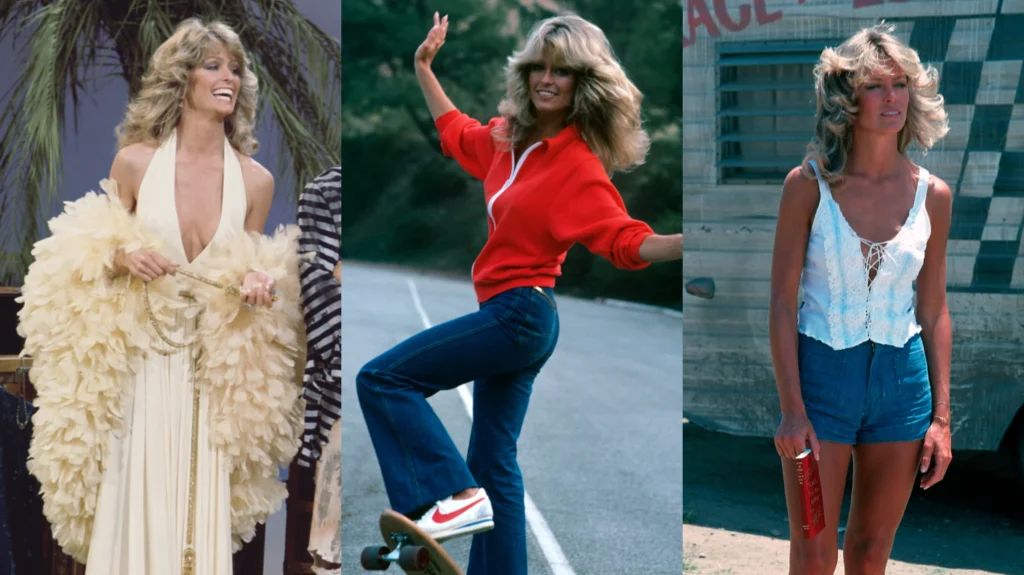
photo/i-d.vice.com
Bianca Jagger’s 70s fashion
Bianca Jagger, a Nicaraguan social and human rights activist, is also celebrated for her fashion influence during the 70s. She was known for her tailored suits, often in white or pastel colors, and her impeccable sense of style. Jagger’s androgynous fashion choices challenged traditional gender norms and set new standards for power dressing.
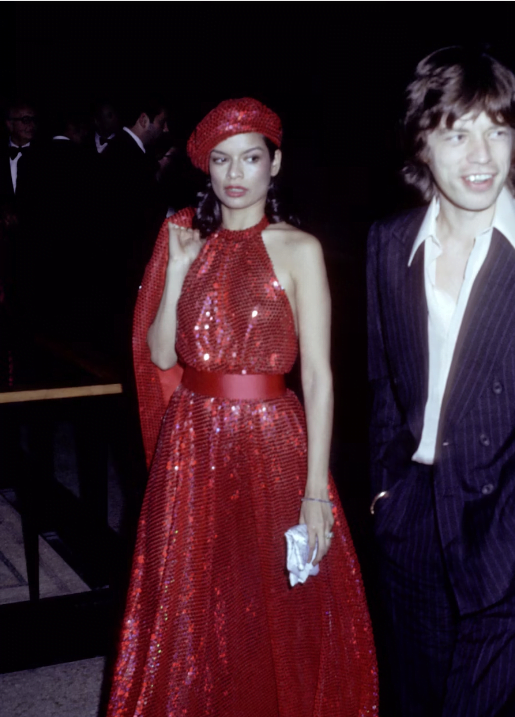
photo/getty
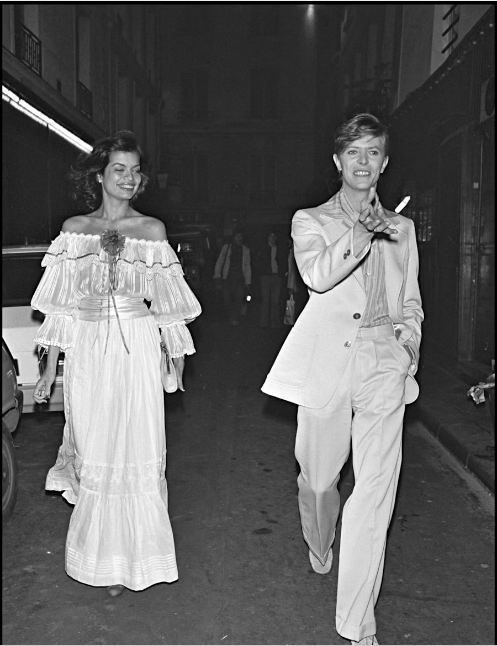
photo/getty
Bo Derek’s braids
As Bo Derek gracefully jogged along the sandy shoreline, clad in her stunning nude halter one-piece, her portrayal in the acclaimed movie “10” catapulted her to pin-up and fashion icon status during the 1970s. The breathtaking scene left an indelible mark, with women across the globe emulating her iconic braided hairstyle.
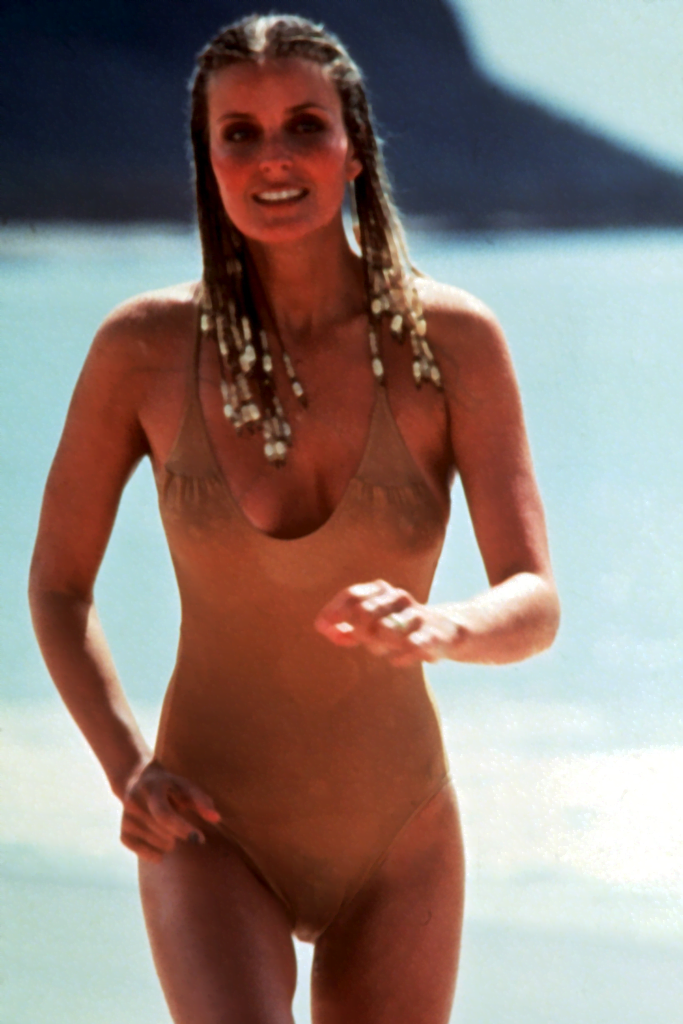
photo/getty
***The Fashion Designers***
Diane Von Furstenberg’s 70s fashion
In 1974, Diane embarked on a mission to design a comfortable silk jersey dress that would effortlessly flatter every woman’s unique body shape. This endeavor led to the creation of her now-famous wrap dress, which would go on to become an iconic fashion piece. Initially introduced in a limited range of prints, reminiscent of the seventies era, Diane’s wrap dress gained immediate attention and recognition. It even graced the cover of the renowned business publication Newsweek, proclaiming Diane as the “most marketable designer since Coco Chanel.” The magazine’s prediction proved accurate, as by 1976, Diane had successfully sold over 5 million of her dresses worldwide, solidifying her position as a prominent figure in the fashion industry. Her accomplishment in establishing a lasting fashion empire during the seventies truly marked her as an icon of that era.
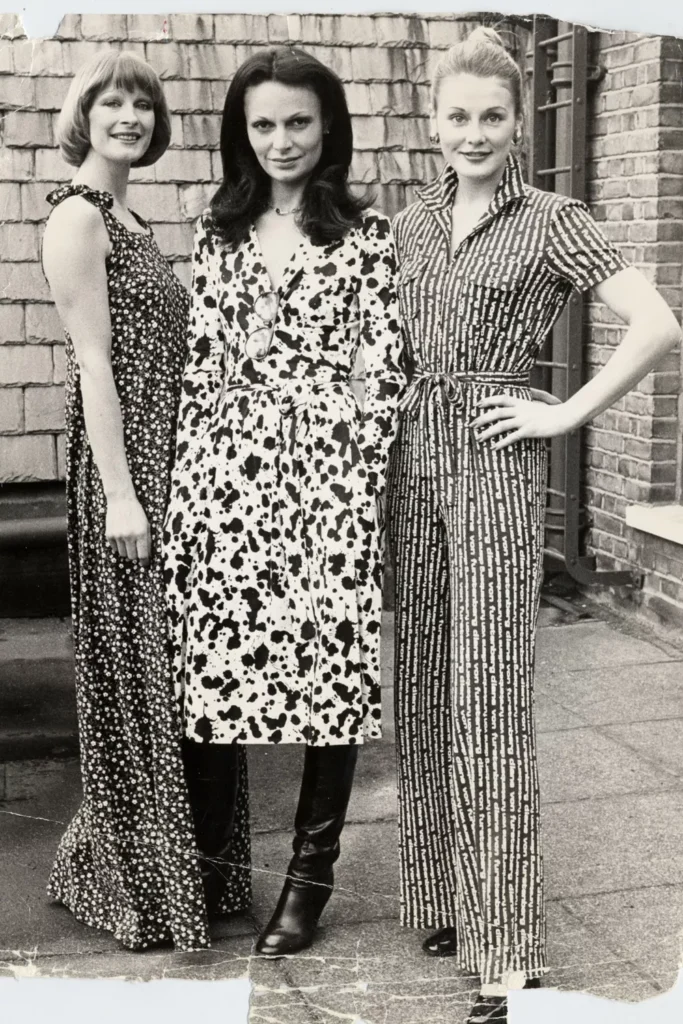
photo/marieclaire.co.uk
Halston’s 70s fashion
Introducing the charismatic icon of the 1970s: Roy Halston Frowick, the visionary designer who achieved extraordinary fame during this era, all thanks to his remarkable talent for creating elegantly understated draped gowns. One of his most iconic contributions to fashion was the revolutionary jersey halter dress, a true testament to his creative genius. It was during this vibrant decade that Halston’s star ascended to legendary heights.
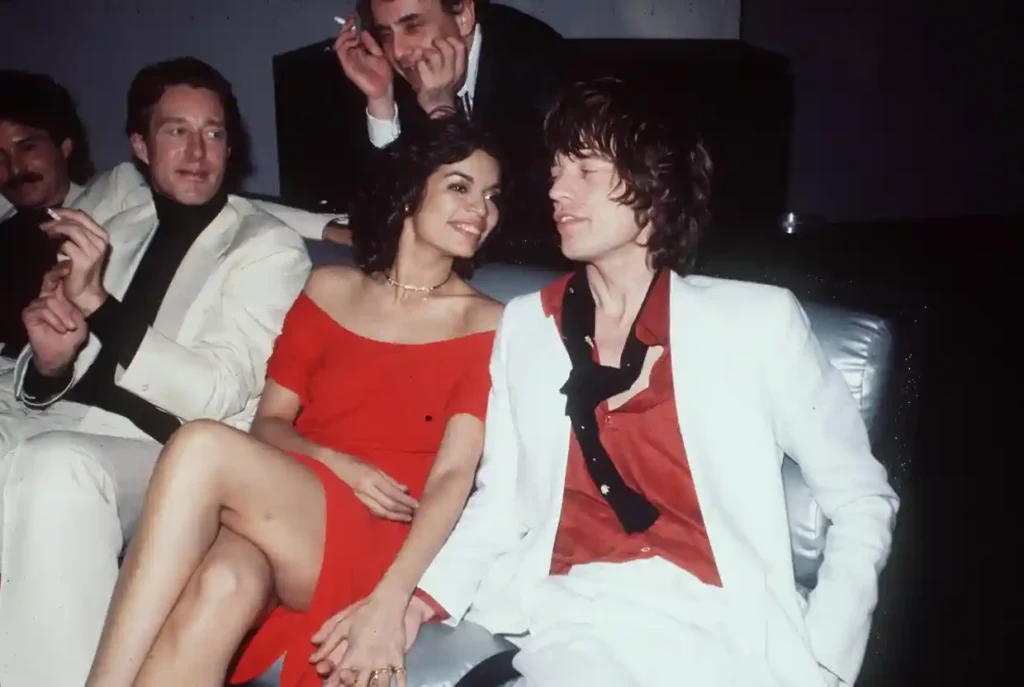
photo/‘That red dress …’ Halston, Bianca and Mick Jagger at Studio 54 for her birthday in 1977. Photograph: Robin Platzer/Twin Images/Getty Images
Karl Lagerfeld’s 70s fashion
Prior to Karl Lagerfeld ascending to his esteemed position as the revered Kaiser at Chanel, he devoted his talents to another prominent fashion powerhouse – Chloé. Lagerfeld’s distinct vision played an instrumental role in shaping the label’s iconic bohemian direction, an aesthetic that even the present-day designer, Clare Waight Keller, pays homage to. Undoubtedly, one particular swimwear ensemble from Lagerfeld’s illustrious 1974 collection captivates our admiration, flawlessly capturing the essence of 1970s fashion.
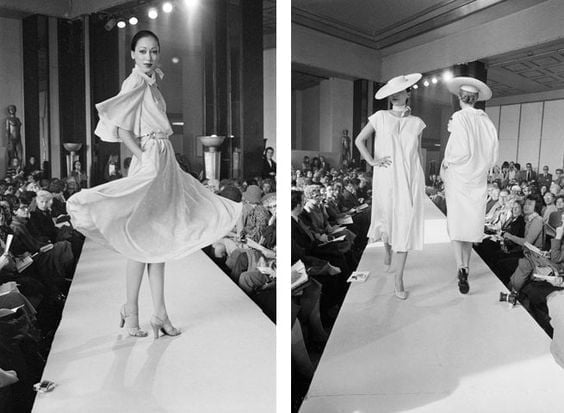
Photo/google
Barbara Hulanicki’s 70s fashion
Discovering the authentic fashion choices of women in the 1970s unveils a fascinating era. One standout establishment, Barbara Hulanicki’s renowned London boutique called Biba, witnessed an extraordinary surge in sales. Biba offered a wide range of fashionable items, including cat-patterned bell-bottom power suits and vibrant smock dresses, all priced reasonably. This groundbreaking boutique played a pivotal role in sowing the seeds of high street fashion. Moreover, with its unparalleled mail ordering service, women from all corners of the country had the opportunity to embrace the concept of fast fashion for the very first time.
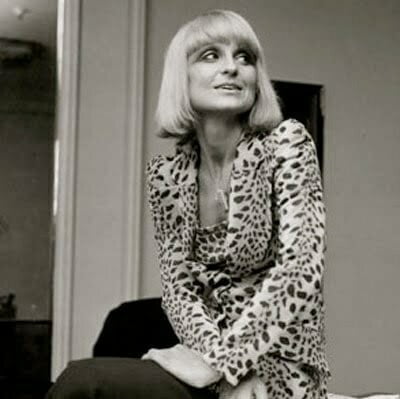
Laura Ashley’s 70s fashion
Women were captivated by the enchanting silhouettes and flower-infused patterns of Laura Ashley, satisfying their desire for 1970s fashion. Initially, the Edwardian-inspired dresses and vintage-themed fabrics provoked mixed reactions among the fashion-forward crowd. The designer, however, defended them, saying, “These garments aren’t meant for making bold statements in extravagant settings. They are meant to be worn as effortless attire at home, providing a comforting sense of nostalgia when you return.” Speaking for ourselves, we absolutely adore them.
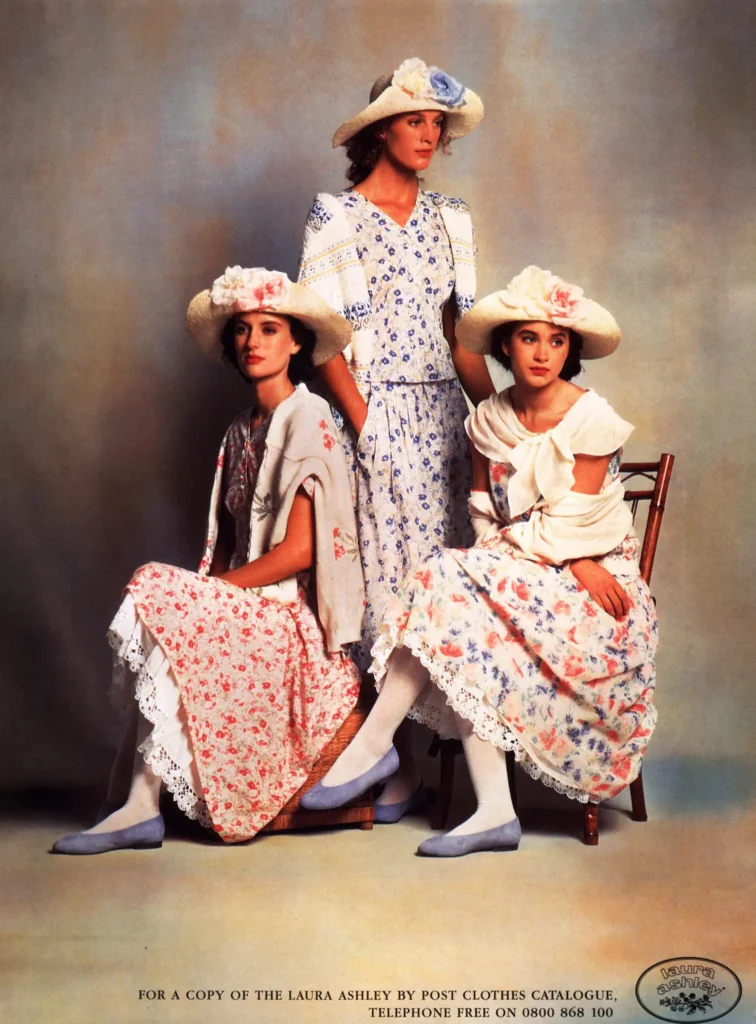
photo/nytimes.com
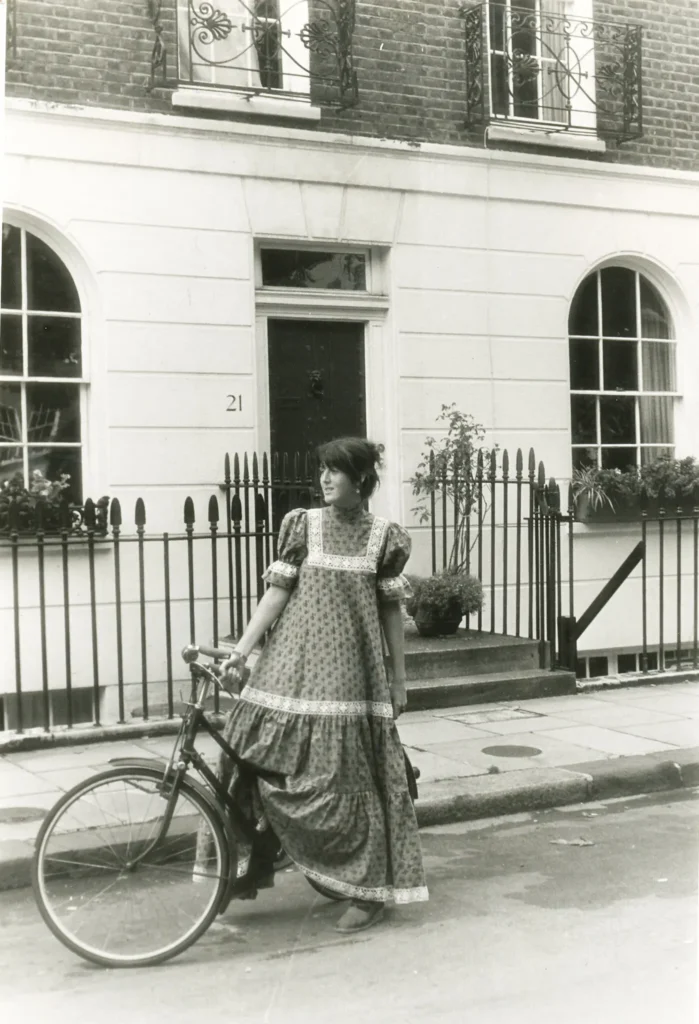
photo/nytimes.com
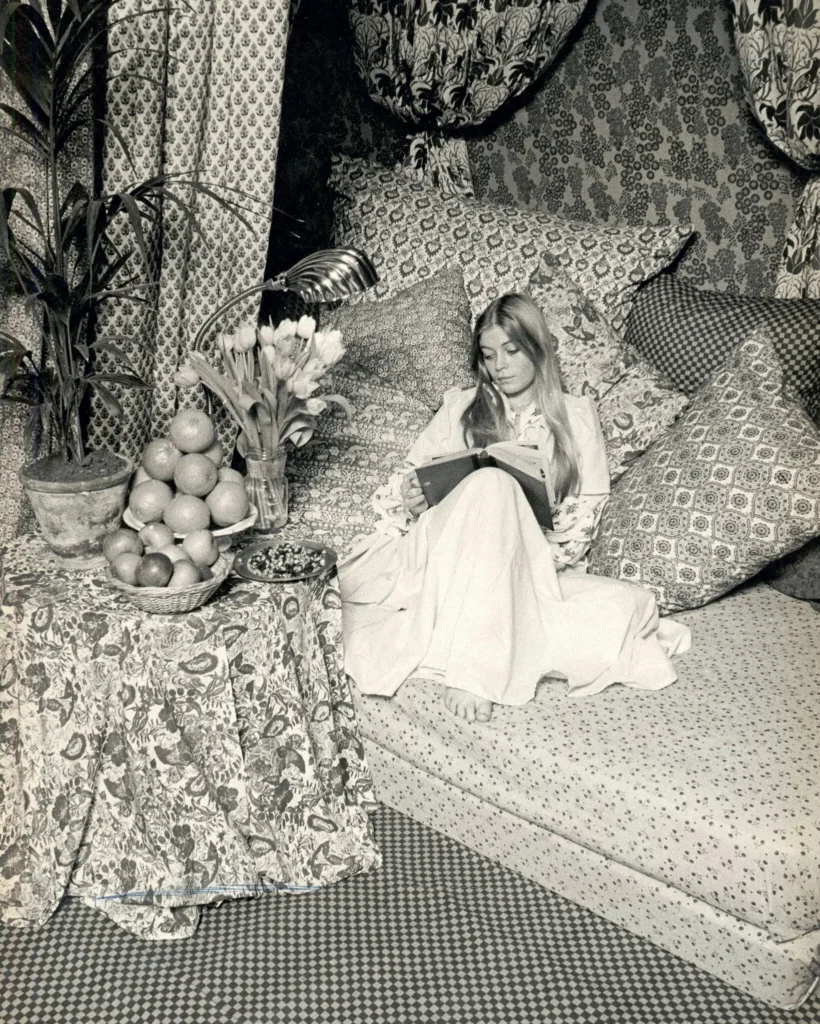
photo/nytimes.com
Vivienne Westwood’s 70s fashion
In the realm of punk fashion, Vivienne Westwood emerged as a groundbreaking figure who would leave an indelible mark on the industry. Her venture, the boutique Too Fast To Live, Too Young To Die, located on Kings Road in 1971, was poised to make fashion history. Just two years later, she rebranded the shop as SEX, revolutionizing the fashion scene by transforming fetishes into wearable art with a captivating slogan: “rubberwear for the office.” This audacious move was met with overwhelming enthusiasm, catapulting Westwood to the status of one of the most influential names in the world of fashion.
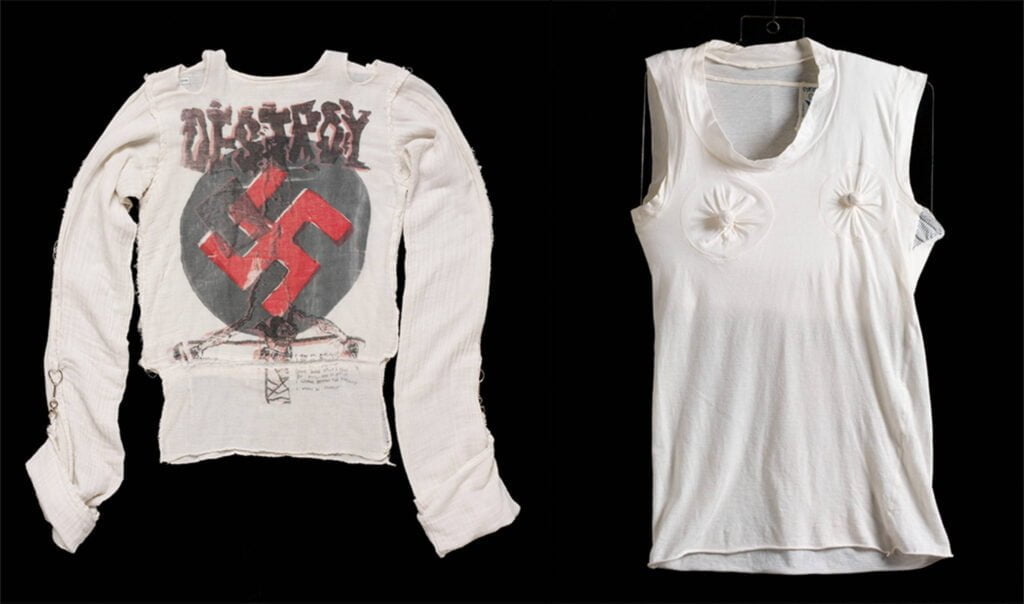
Left to right: Top, Vivienne Westwood and Malcolm McLaren, 1976, England. Museum no. T.93-2002. Top, Vivienne Westwood and Malcolm McLaren, 1976, England. Museum no. T.90-2002. © Vivienne Westwood and Malcolm McLaren/Victoria and Albert Museum, London
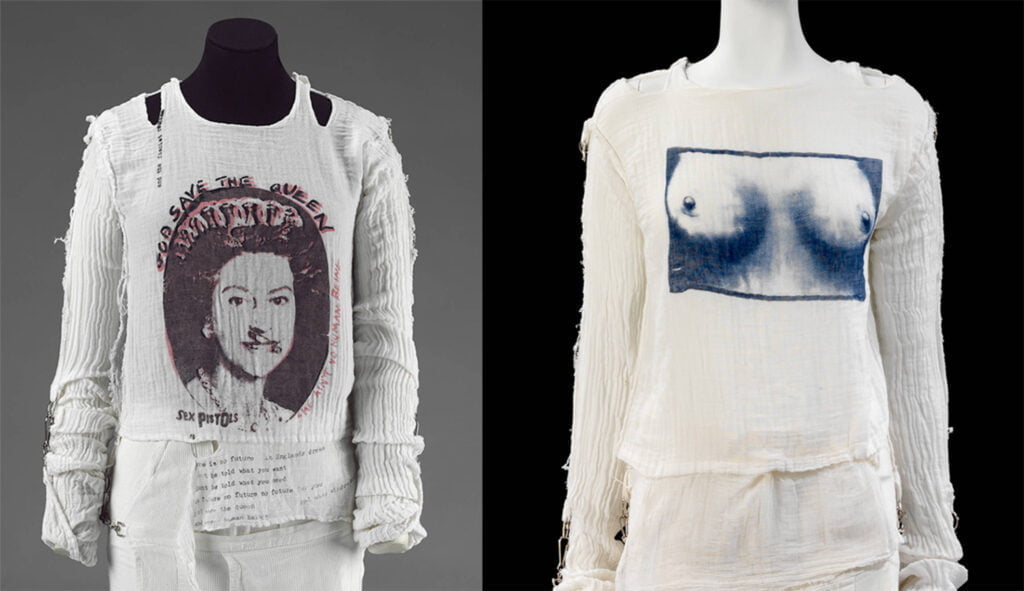
Left to right: Shirt, Vivienne Westwood and Malcolm McLaren, 1977, England. Museum no. T.773-1995. T-shirt, Vivienne Westwood and Malcolm McLaren, 1981, England. Museum no. T.240-1991. © Vivienne Westwood and Malcolm McLaren/Victoria and Albert Museum, London
Conclusion
The style icons of the seventies left an everlasting impact on fashion. Their bold, daring, and unconventional choices continue to inspire designers, stylists, and fashion enthusiasts around the world. From disco glitz to bohemian allure, rock rebellion to Hollywood glamour, androgynous power to timeless elegance, the seventies fashion icons have shaped the way we dress and express ourselves today.
FAQs
1. Who were the style icons of the seventies? Some of the prominent style icons of the seventies include Donna Summer, Diana Ross, Stevie Nicks, Jane Birkin, David Bowie, Debbie Harry, Farrah Fawcett, Cher, Bianca Jagger, and Annie Lennox.
2. How did music influence seventies fashion? Music genres like disco, rock, and punk played a significant role in influencing fashion trends of the seventies. Musicians themselves became style icons, and their distinctive fashion choices inspired fans and fashion enthusiasts.
3. What were the key fashion trends of the seventies? The seventies witnessed a wide range of fashion trends, including disco-inspired sequins and metallics, bohemian maxi dresses and fringe details, androgynous rock ‘n’ roll rebellion, glamorous Hollywood red carpet looks, and the blurring of gender lines in fashion.
4. Are the seventies fashion trends still relevant today? Yes, many seventies fashion trends remain relevant and continue to inspire contemporary fashion. Elements like disco sparkle, bohemian vibes, and androgynous styles can be seen in today’s fashion industry.
5. How did seventies fashion contribute to the evolution of the fashion industry? Seventies fashion challenged traditional norms and pushed the boundaries of self-expression. It paved the way for more diverse, inclusive, and daring fashion choices, encouraging individuality and freedom of style.
Thanks for the tips shared on your own blog. Something else I would like to state is that fat loss is not information about going on a celebrity diet and trying to get rid of as much weight as you can in a couple of weeks. The most effective way in losing weight is by using it slowly and obeying some basic tips which can help you to make the most from a attempt to shed weight. You may understand and already be following a few of these tips, however reinforcing information never affects.
Hello would you mind sharing which blog platform you’re working with? I’m looking to start my own blog in the near future but I’m having a tough time choosing between BlogEngine/Wordpress/B2evolution and Drupal. The reason I ask is because your design and style seems different then most blogs and I’m looking for something completely unique. P.S My apologies for being off-topic but I had to ask!
Thanks for sharing. I read many of your blog posts, cool, your blog is very good. https://accounts.binance.com/ka-GE/register-person?ref=V3MG69RO